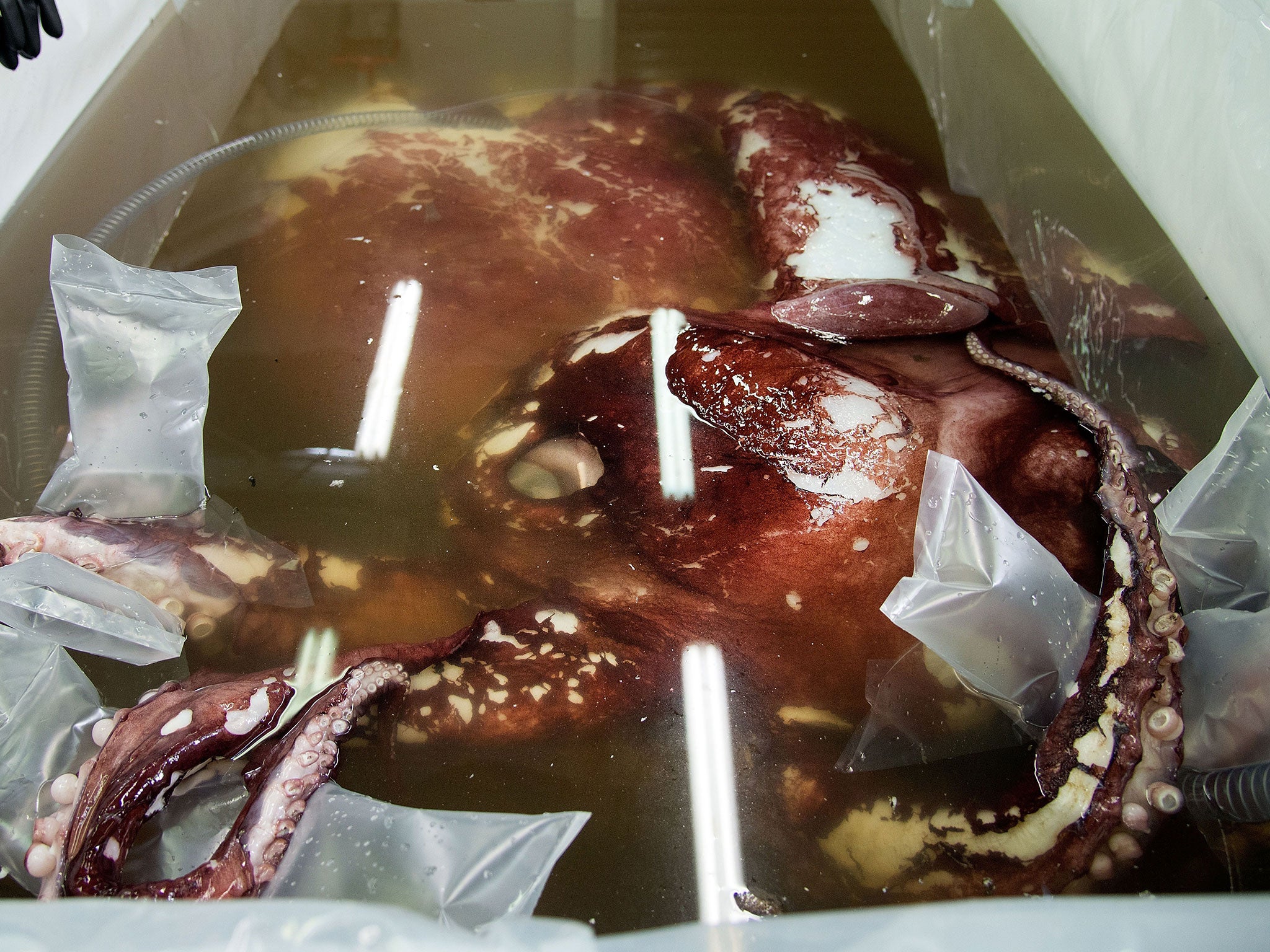Scientists defrost 350kg colossal squid for examination
Video: The squid has been frozen for eight months since being caught in Antarctica's remote Ross Sea

Christmas has come early for marine scientists in New Zealand.
After waiting eight months, researchers were finally able to thaw out a 350kg squid in order to inspect the elsuive deep sea creature.
A forklift was required to place the colossal specimen into a tank, which was described as being as long as a minibus. The colossal squid is the world's heaviest invertebrate.
Colossal squids are rarely seen in daylight or alive, hence they are often imagined as mythical creatures of the deep rather than tangible specimens of nature. Ancient sightings of the squid led to stories about the kraken, a giant sea-monster squid.
Kat Bolstad, a squid scientist from the Auckland University of Technology who led the examination team, described the squid in question as "very big, very beautiful".
Bolstad's team examined the creature at the Museum of New Zealand Te Papa Tongarewa in Wellington, New Zealand. The squid is a female and each of its eight arms stretch to over a yard.
"This is essentially an intact specimen, which is almost an unparalleled opportunity for us to examine," Bolstad said. "This is a spectacular opportunity."
At one point in video of the examination, it takes five people to lift the fin of the colossal squid, such is the weight of the animal.
He told scientists that when fishermen come across colossal squid, they had to be well-prepared to get the squid up onto the boat and keep it in good condition.
Bennett last caught a colossal squid seven years ago and it is still on display at Te Papa Museum in Wellington.
Bolstad said that her team were hoping to find answers to a lot of questions when examining the colossal squid, such as how it lives and dies and where it fits in the food chain. Bolstad said they were not dissecting the creature as they were unsure what the museum intended to do with the animal.
"It might become part of the collections, it might go on display, we're not going to do anything that would ruin it for either of those purposes," Bolstad said, adding "but we do have a lot of questions that we want to try to answer so we have many different projects that we will be collecting samples for".
Additional reporting by the Associated Press.
Join our commenting forum
Join thought-provoking conversations, follow other Independent readers and see their replies
Comments
Bookmark popover
Removed from bookmarks